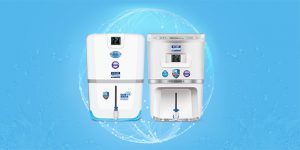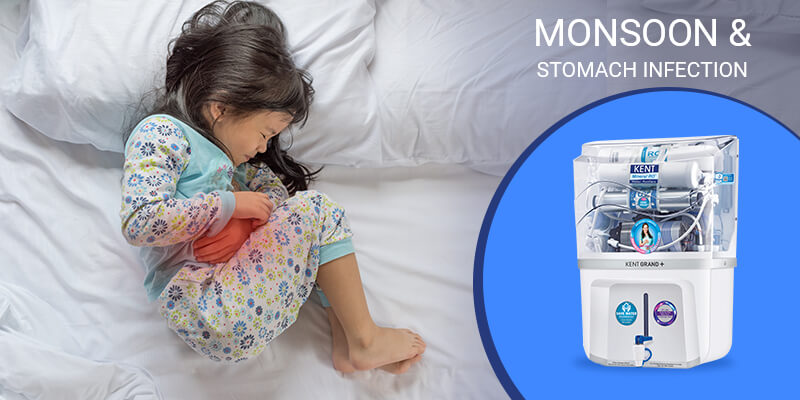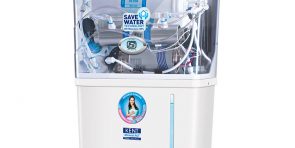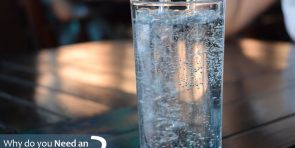The Risk of Diarrhoea During Monsoon and Ways to Stay Safe
The arrival of the monsoon provides a lot of relief from the unbearable heat; however, the season also raises the risk of a host of diseases, including diarrhea. Every year there is a sudden increase in water-borne diseases during monsoon as a result of stagnant rainwater. Kids are at a higher risk of suffering from water-borne diseases, thereby making it important to ensure that they eat and drink right. Diarrhoeal disease is the second-largest cause of death in children and approximately 1.7 million children die every year as a result of diarrhoeal disease. So, in this blog, we discuss the reasons for the rise in diarrhea during monsoons and how to stay safe.
What Causes of Diarrhoea
Infections and side effects of medicines are some of the main reasons for acute or persistent diarrhea. There are three types of infections that lead to diarrhoea:
1. Viral Infections:
Viruses such as norovirus and rotavirus lead to common viral infections. Viral gastroenteritis is a common cause of acute diarrhoea.
2. Bacterial Infections:
Eating contaminated food and water is one of the main reasons for diarrhoea. Several types of bacteria such as E. Coli, Salmonella, and Shigella enter your body through contaminated food and water leading to diarrhoea.
3. Parasitic Infections:
Contaminated food also makes it easy for parasites such as Giardia Lamblia to enter your body and settle in the digestive tract leading to chronic diarrhoea.
3 Types of Diarrhoea
There are three clinical types of diarrhoea. These are:
1. Acute Water Diarrhoea
Also known as osmotic diarrhoea, this type of diarrhoea happens when too much water is pulled into your bowels. This type of diarrhoea can last for several hours or days.
2. Motility-Related Diarrhoea
This type of diarrhoea is associated with abdominal pain and cramping.
3. Inflammatory Diarrhoea
This type of diarrhoea consists of abdominal pain and signs of inflammation such as fever and abdominal tenderness. Inflammatory diarrhoea is also related to intestinal bleeding, with blood in the stool. Sometimes, the blood may be invisible and detected only by testing the stool.
Diarrhoea in Children
Stomach flu, which is also known as viral gastroenteritis is very common among kids. Stomach flu leads to diarrhoea in children as a result of an infection in the intestines. Viruses, bacteria, and parasites are the main cause of diarrhoea. The symptoms of diarrhoea last for a few days; however, if kids don’t drink enough water, it can lead to dehydration. Drinking unclean and impure water infected by microorganisms are the main causes of diarrhoea. In addition, a high sugar diet, food allergies, and problems with the intestines can also lead to diarrhoea in children.
Symptoms of Diarrhoea
The common symptoms associated with bacteria include:
- Abdominal cramps
- Abdominal pain
- Frequent watery faeces
- Nausea
- Vomiting
Some serious symptoms of diarrhoea are:
- Blood in faeces
- Pus in faeces
- Painful passage of faeces
- Vomiting
- Reduced urination
- Fever
How Long Does Diarrhoea Last?
Diarrhoea can last for 5-7 days among children. However, it will rarely last for more than 2 weeks among children. In adults, the condition improves within 2-4 days. In some cases, however, diarrhoea can last for more than a week. If a person has more than 10 loose, watery stools in a single day, it’s a symptom of severe diarrhoea. Moderate diarrhoea means having more than a few but less than 10 watery stools a day.
Prevention of Diarrhoea
Following the steps mentioned below can play an important role in keeping children as well as adults safe from diarrhoea:
- Drink safe water- Poor sanitation and contaminated water are the main sources of diarrhoea, especially during monsoon. This is the reason why drinking clean and purified water is a must during monsoon. Instead of depending on bottled water, it is advisable to install an RO water purifier, which removes different types of impurities and makes water safe for use.
- Avoid outside food from street vendors as much as possible. The reason is street vendors use unclean and contaminated water. In addition, the unhygienic methods of preparation also lead to diarrhoea.
- Wash and cook vegetables as well as fruits with proper care. Instead of washing fruits and vegetables in plain water, you can either use vinegar-infused water or get a vegetable and fruit cleaner. The appliance uses ozone disinfection technology to remove contaminants from water.
- Avoid eating raw or uncooked food- Raw and uncooked food can lead to severe diarrhoea. This is the reason why you need to make sure that you prepare well-cooked food.
Should you Drink Water if you have Diarrhoea?

One of the main problems with diarrhoea is dehydration. The body loses a lot of water and electrolytes such as sodium, potassium, and calcium that are needed to function smoothly. If the right precautions are not taken, it can be dangerous, especially among children. To manage diarrhoea, make sure you drink a lot of water, juices, clear broths. Avoid drinking coffee, caffeinated drinks, sugary drinks, and sodas as these will have a laxative effect. Make sure that the water you drink is free of contaminants and microorganisms. This is the reason why you need to install an RO water purifier from KENT, which removes chemicals as well as microorganisms to make water safe for use.
Frequently Asked Questions
1. How can we improve digestion in the monsoon?
During the monsoon season, digestion can be affected by humidity and changes in food quality. Improve digestion by opting for warm, freshly cooked meals and avoiding raw or street foods. Use digestive spices like ginger, cumin, and coriander. Drink warm herbal teas such as ginger or peppermint tea. Stay hydrated with lukewarm water and limit chilled beverages. Practice mindful eating, chew food properly, and maintain a balanced diet with fiber-rich foods. These steps can help enhance digestion during the monsoon and promote overall well-being.
2. Why does the monsoon give you diarrhoea?
During the monsoon, the risk of diarrhoea increases due to various factors. The combination of high humidity and rainfall can lead to water contamination, resulting in the spread of bacteria, viruses, and parasites that cause gastrointestinal infections. Additionally, the monsoon season promotes the growth of bacteria and molds in food, leading to food poisoning. Poor sanitation and inadequate hygiene practices further contribute to the transmission of diarrheal diseases. Consuming contaminated water or improperly cooked food during this time can increase the chances of contracting diarrhoea and other gastrointestinal illnesses.
3. Why do stomach infections occur in the rainy season?
Stomach infections are more common during the rainy season due to various factors. The increased humidity and stagnant water provide favorable conditions for the growth of bacteria, viruses, and parasites that cause gastrointestinal infections. Contaminated water sources and inadequate sanitation practices contribute to the spread of these pathogens. Additionally, consumption of contaminated food, especially street food or improperly stored food, can lead to food poisoning and stomach infections. It is important to maintain proper hygiene, drink clean and filtered water, and consume freshly cooked meals to reduce the risk of stomach infections during the rainy season.





